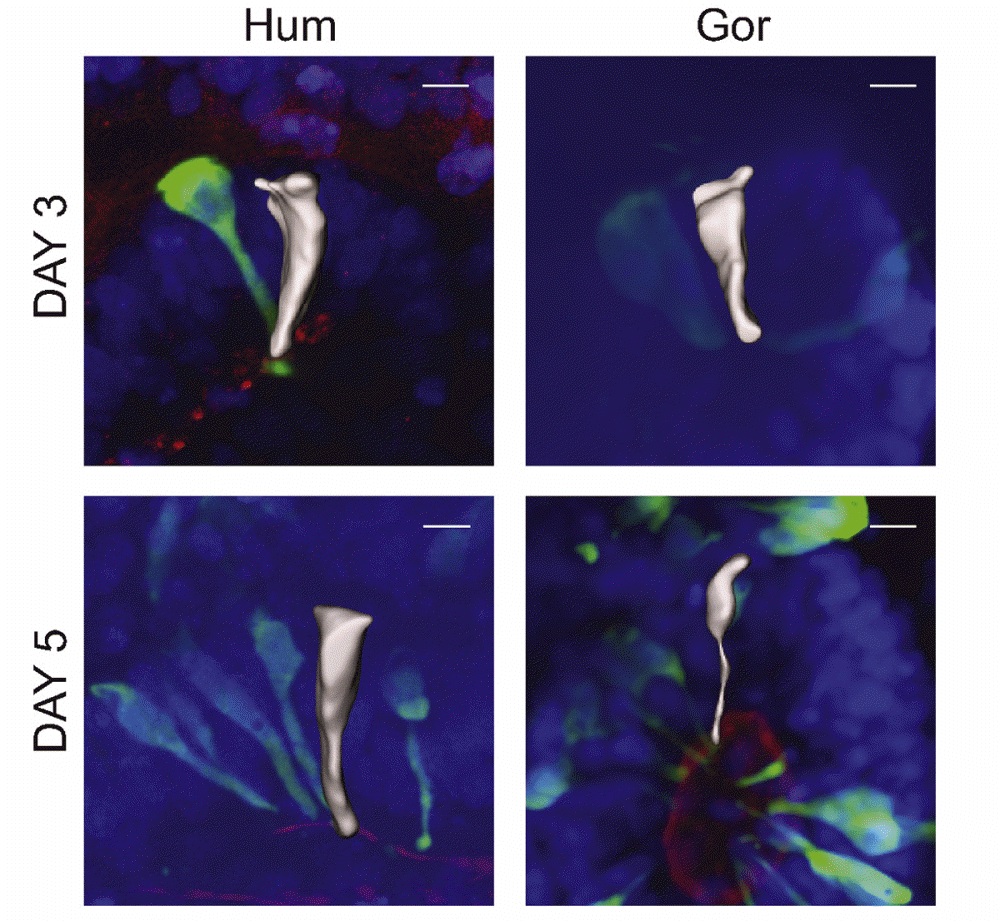
There is a lot of research on the human brain, and in March 2021, it is reported that the human brain has evolved greatly to hunt small and fast prey. A research team affiliated with the UK’s MRC Molecular Biology Research Center has revealed why the new human brain is more developed than other primate brains and the genes that contribute to the development.
The research team used stem cells to create brain tissue called brain organoids to monitor the development of brain tissue in humans, gorillas, and chimpanzees. In the brain organoid formation process, neural stem cells that form cells that differentiate into neurons, like the actual brain, appear. It is known that these neural stem cells become smaller when they mature, and as many neurons are formed as they mature later. In addition, past studies have shown that rat neural stem cells, which are less intelligent than primates, mature within a few hours.

Brain organoids are also mature on the 3rd and 5th days after the start of cultivation. Human brain organoids are similar to those of neural stem cells, but in the case of gorillas, the neural stem cells are smaller on the 5th day.
For this reason, the research team argues that human neural stem cells mature more slowly than other primate neural stem cells, and thus neural stem cells are formed, resulting in larger brain tissue, resulting in larger brain capacity. In fact, humans, gorillas, and chimpanzees can see that human brain organoids have grown the most if you check photos of brain organoids 5 weeks after the start of cultivation.

The research team investigated the cause of the change in the maturation rate of neural stem cells by organisms, and as a result, found that a gene called ZEB2 was expressed in gorilla neural stem cells. The research team predicted that ZEB2 promotes neural stem cell maturation. In fact, as a result of expressing ZEB2 in human neural stem cells, it was confirmed that neural stem cells mature in the same period as gorillas.
In addition, as a result of suppressing the expression of ZEB2 in gorilla neural stem cells, it was also confirmed that the neural stem cell maturation period was prolonged. The research team presupposes that this experiment was performed using brain organoids, and therefore, ZEB2 is not the only thing that actually works in the primate brain. Related information can be found here.

